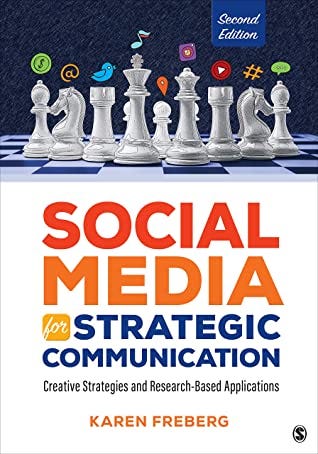What are social media influencers - an updated definition by Karen Freberg
someone who has built an audience, naturally and over time
Karen Freberg offers an update to the much quoted definition of a social media influencer in the second edition of Social Media for Strategic Communication: Creative Strategies and Research-Based Applications. "An influencer is someone who has built an audience, naturally and over time, and who is viewed as an authority on a certain subject, practice, or perspective in online spaces.”
In addition, says Freberg, “because an influencer has the trust of a community, that person can share content that persuades their audience to take a specific action."
A great overall resource for an aspiring professional, the book is a pleasant read with many practical examples.
As the influencer marketing industry matures, earning opportunities present themselves for Creators as well as Influencers of various caliber from Nano to Micro, Mega, all the way to Celebrity status. Freberg updates the reader of industry actors such as agencies specializing in influencer relations (a list by Influencer Marketing Hub), multi-channel networks who work with a roster of select influencers (Mediakix: What is an MCN), as well as influencer marketing platforms (a list by Influencer Marketing Hub).
As a gen-X-er, I was amused by the author's clever movie examples ("the strategic plan can be used as a guiding compass similar to the one that Jack Sparrow uses in Pirates of The Caribbean"), ostensibly familiar to millennials, the book's target readers. Unlike an ordinary compass, Jack's compass pointed to what the owner wanted most.
The textbook also refers to scientific articles, such as this one by Vilma Luoma-aho & al (2019): Primed Authenticity: How Priming Impacts Authenticity Perception of Social Media Influencers. The study examined authenticity and priming in the case of a positive brand endorsement. It found that sponsored content is less risky for organizations than influencers as the vloggers will receive a much greater share of negativity when content is perceived as inauthentic. Future studies should concentrate on examining the results in various endorsement situations, the researchers suggest.
For my Kindle highlights of Freberg's textbook, check out the Goodreads entry.




